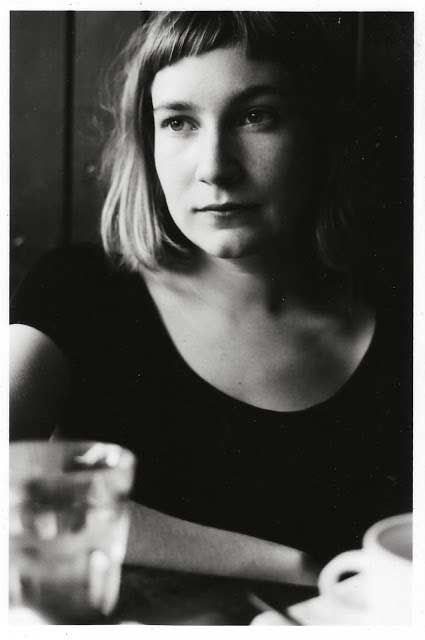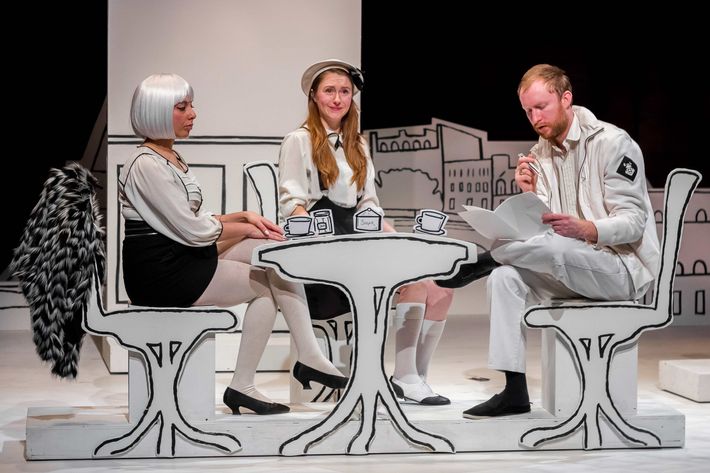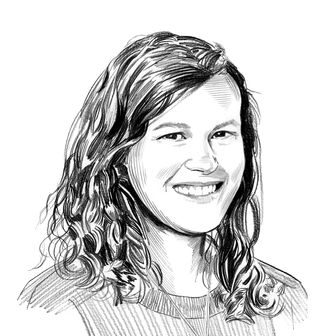
In 2006, Sheila Heti started writing a novel about failing to write a play. The play, commissioned by a feminist theater company, was abandoned after five years of workshops. The novel, meanwhile, became How Should a Person Be? — an experimental, semi-autobiographical rumination on friendship and art that was published in Canada in 2010. The book was released in the U.S. two years later, where it found an enthusiastic audience among fans of writers like Chris Kraus. In fact, Kraus herself compared Heti to Mary McCarthy, whose work offered “an explosive and thrilling rejoinder to the serious, male coming-of-age saga,” writing that How Should a Person Be? “exuberantly appropriates the same, otherwise tired genre to encompass female experience.”

Shortly after the book’s release, the playwright and director Jordan Tannahill contacted Heti to find out whether the play mentioned in the book actually existed. She sent him a copy of the original manuscript she’d written in 2001: All Our Happy Days Are Stupid, the two-act story of two families vacationing in France that involves a missing 12-year-old, runaway mothers, an affair with a man in a bear suit, and eight songs written and composed by Dan Bejar. Tannahill told Heti he was interested in directing it, and in 2013, he and Erin Brubacher staged it at Videofag in Toronto. The play — which is now available from McSweeney’s — ran again earlier this month at Toronto’s Harbourfront Centre, and opened last night at the Kitchen in New York, where the upcoming seven shows are already sold out.
The Cut spoke with Heti about failure, hindsight, and why it’s so hard to write a good play.
In the introduction to All Our Happy Days Are Stupid, you talk about going back and forth over revisions for the play with the theater company for about five years. What was the process of writing it like?
I don’t really remember completely. It was so long ago — either the fall of 2001 or the spring of 2002 or a combination of both. I wrote the first act pretty quickly and then there was a delay. The second act is quite different from the first, and it was definitely more difficult to write. I was always nervous about whether they hung together. I wrote many scenes that I ended up throwing out, and then many more scenes during the workshop production, which I ended up not using. The show that’s being performed now is the original script I gave to the theater, with one new scene at the end, which I wrote last year.
What kinds of changes did the directors want you to make to the play?
I think they wanted the characters to react more like humans would, as they saw it. So, for instance, if a woman’s son goes missing, she should be concerned about that a little more than Mrs. Sing is. Mrs. Sing reacts by trying to be friends with Mrs. Oddi, which is not how we tend to think a person would react in that situation. And then, you know, one of the directors was like, “Why does this play move from Paris to Cannes, back to Paris? Just keep it in Paris. Make everything happen in the hotel room.” It seemed like they were worried about the set. And there are a lot of characters in the play, which is a pain because it costs a lot of money to put on a play with so many actors. So there was some pressure to pare it down and get rid of what they saw as unnecessary characters and locations.
What ended up happening with the theater company that commissioned the play?
I sort of said “let’s forget about this” in early 2006. They decided that they were going to produce it, but it was going to mean even more workshops, and I was just so sick of it at that point. They were disappointed, but they agreed that it would be fine to cancel it. So that was it.
You recently told the New York Times that in retrospect, you “needed [the play] to fail.” What do you mean?
Well, I’m happy that I wrote How Should a Person Be? and I wouldn’t have written that exact book if we had just done the play. So much of the book is about the anxiety of failure — the failure of the play and the failure of the divorce and the failure of not feeling like a good person. Those feelings in the book came out of real feelings I was having about all of those things. So, if there hadn’t been a very recent artistic failure, and, I felt, a failure as a person — because I had made a contract with the people at the theater — a commitment — and I failed to fulfill it … I’m just happy that the book happened the way it did, and now the play’s even happening. It feels like nothing was lost, whereas when I canceled the play, it felt like everything was lost.
How does writing a novel feel different from writing a play?
For myself, I feel more natural writing stories or novels than writing plays. I feel more like myself, like I can express myself better, and like I have a greater clarity about what I want to do. Writing plays I’ve always felt a little like I’m guessing — less sure of what’s good and what’s not good. I think that’s because it’s not a complete work of art. The play’s just the means — it’s the starting point. The actors aren’t there yet, the director isn’t there, so you don’t have complete control over the world. I think I prefer writing books because the work of art begins and ends with you — it’s easier to know if you’re doing it right, as opposed to writing a play and then waiting around for somebody else to complete it.
When Jordan Tannahill got in touch with you about wanting to stage the play, what was your reaction?
Well, when he first got in touch, he was just curious to read it, and I had no hesitations about sending it to him. Then, after he read it, he said, “Why don’t we just hear it? Let’s get people together in our friend Marc’s backyard and just hear how it sounds.” Each step was so low pressure that I didn’t feel any resistance. He said, “Let’s do the reading with the songs,” because none of the earlier workshops had included [Dan Bejar’s] songs, so that idea was very appealing to me, to finally hear it with the songs after all these years. When he decided he wanted to produce it, I think I was a little nervous — but I also trusted Jordan by that point and I didn’t feel so attached to any outcomes, because the play had already sort of died and failed for me.
Is the current cast mostly professional actors, or are there non-actors, too?
I’d say just under half are actors or comedians or do something where they get onstage. But yeah, there’s Alexander Carson, who’s a filmmaker, and Carl Wilson, who’s a music critic. I think part of the way Jordan cast the show was to get people he thought would have good chemistry just as a group of people spending time together. So he had that in mind, and I think he wanted people who had very strong aesthetics in whatever work they did — acting or not. Somebody said to me the other day when they saw the show, “It’s like each person is in their own play.” Everyone’s acting in a slightly different style, they meant. I think that suits the play, and matches the sense of vertigo the characters are undergoing.
Was there a reason that you wanted the friendship in the play to be between two mothers?
No, I think it just kind of happened. I wrote the play pretty intuitively. I don’t think I set out thinking it was going to be about the two mothers. I probably set out thinking it was going to be about the kids, Jenny and possibly Daniel, but I just followed the interest — or my interest — and it became about the mothers.

How do you feel about the play now? Does it still give you anxiety?
A little bit. It’s theater, so every night is so different — you can never feel totally relaxed until the run is over, because anything can happen. That’s sort of what’s fun about it. I haven’t seen it at the Kitchen yet, but I felt really positive about the Toronto run. So I’m excited to see it again.
What’s it like for you to watch it?
I really like it. It gives me a lot of pleasure. We had a great run in Toronto. The audience laughed so much, and I laughed, too. I find them all so funny. It’s exciting to experience it alongside the audience. When you’re writing books, you don’t get to experience someone reading your book for the first time or the second time or any time. It’s more fun to see a play, because it’s not just me looking at my words — that is, myself, or myself at an earlier point. You get to be with the actors and the audience too.
This interview has been edited and condensed.





